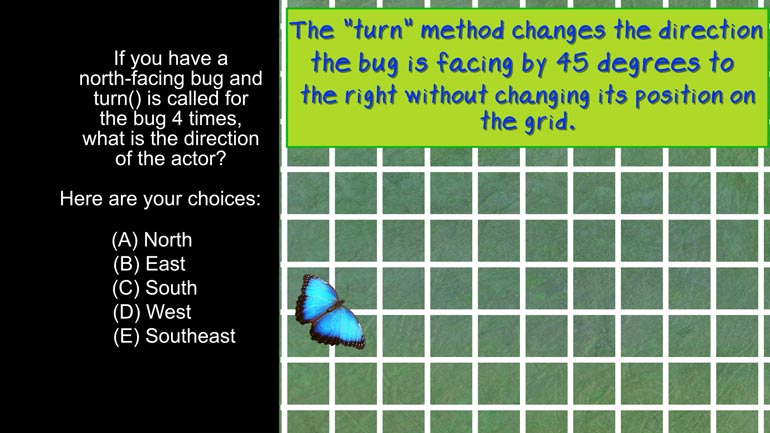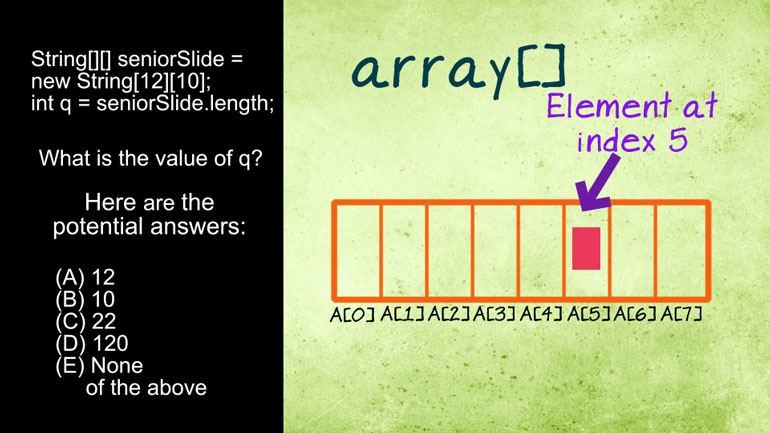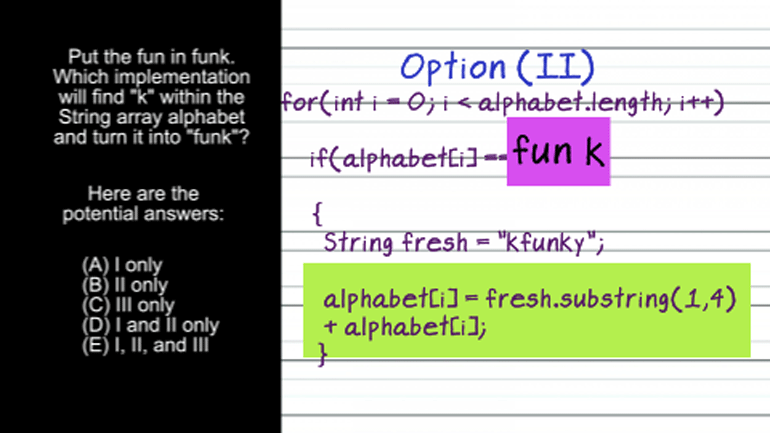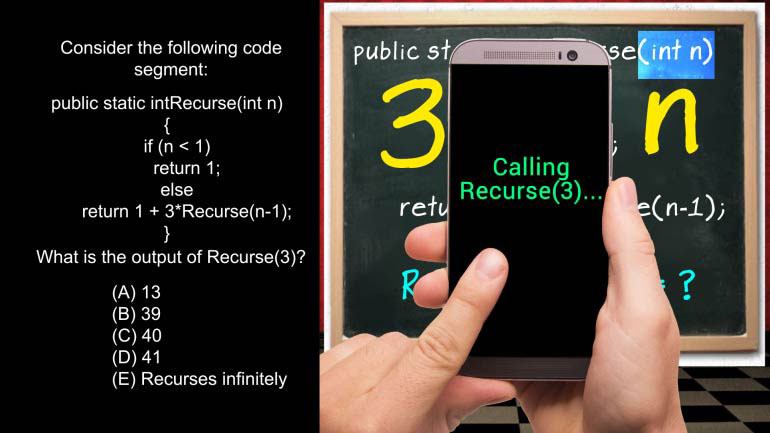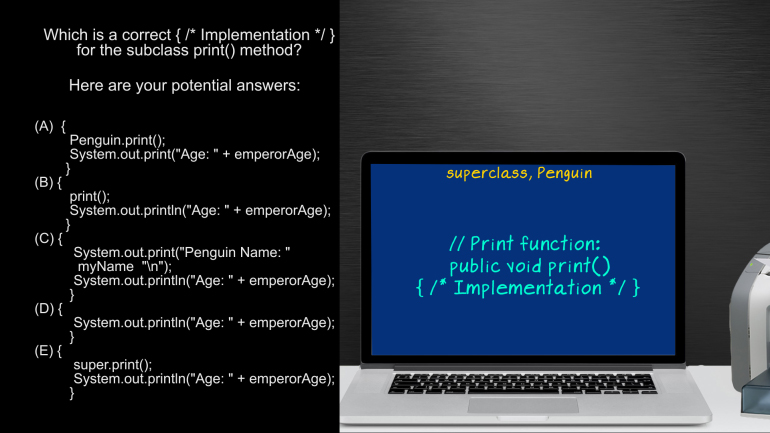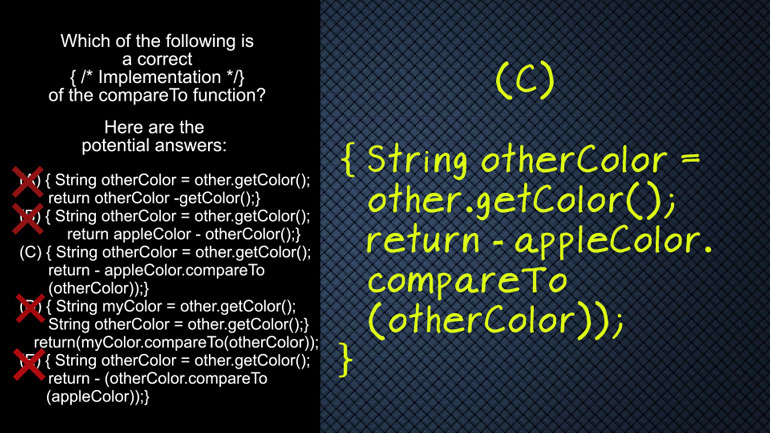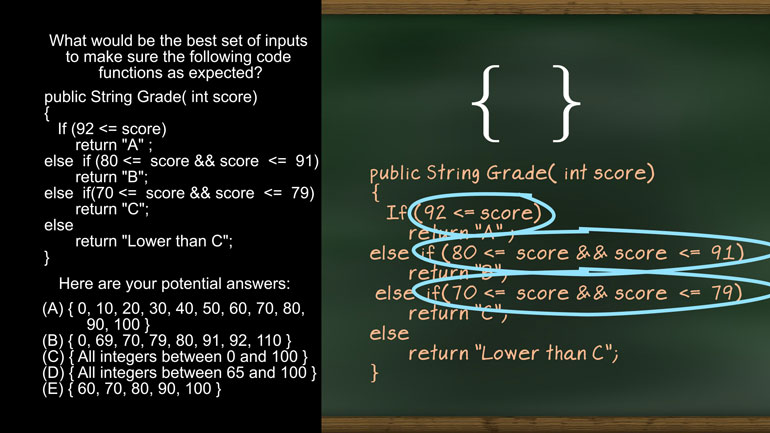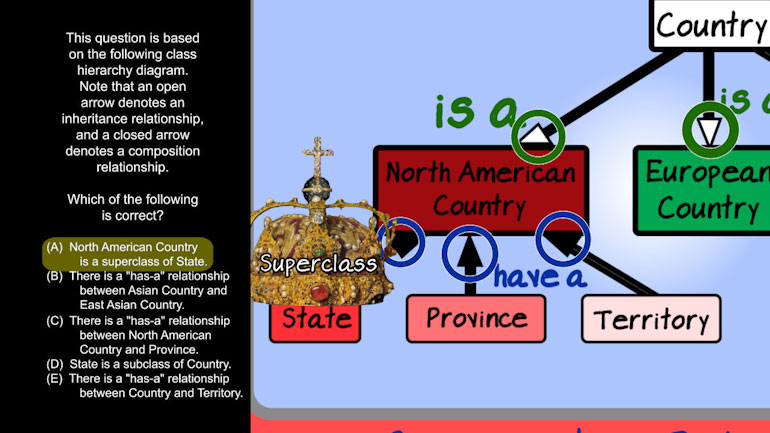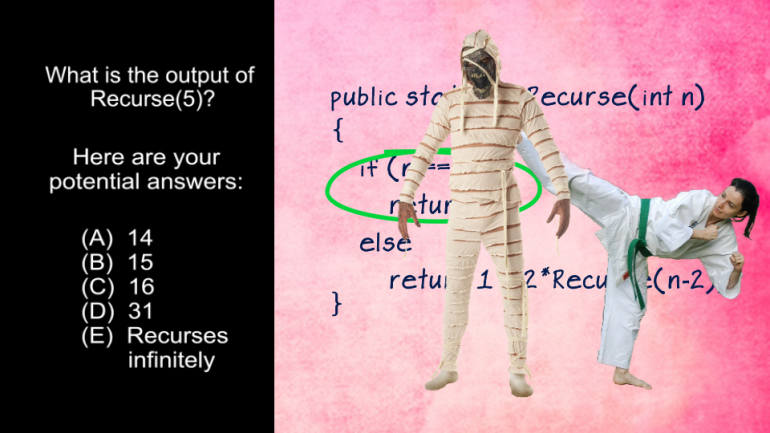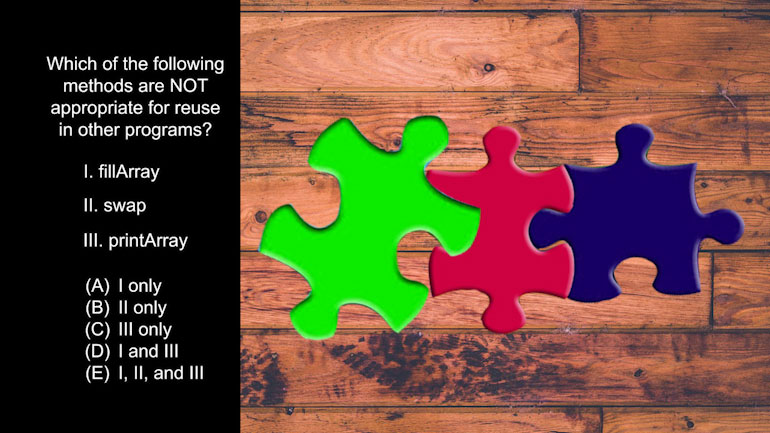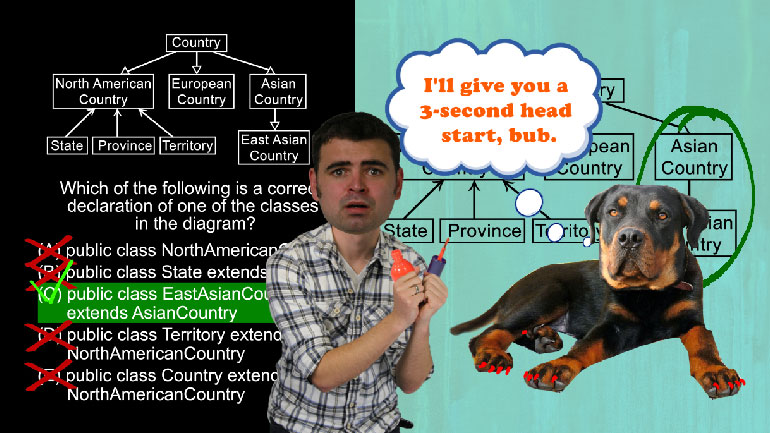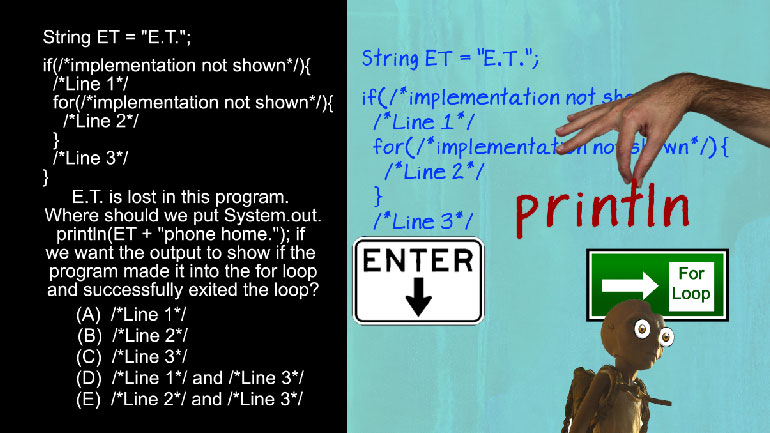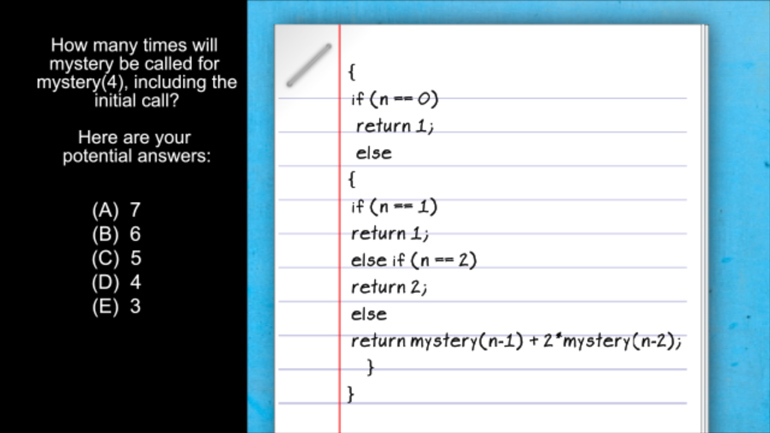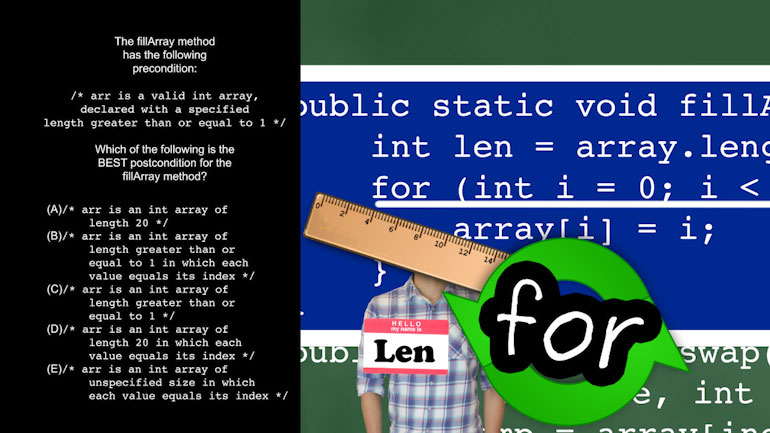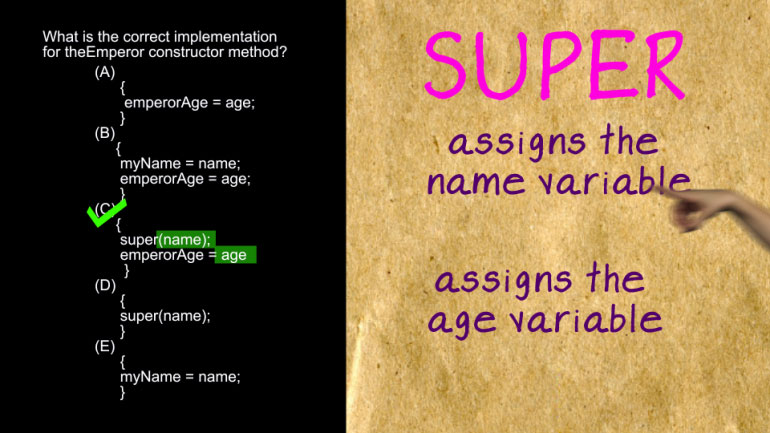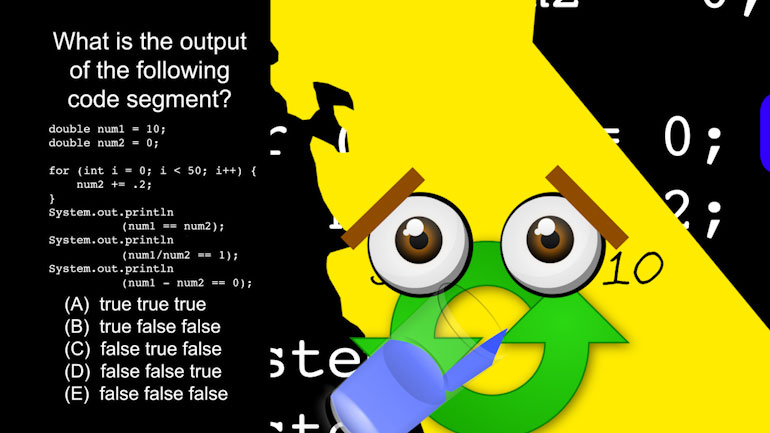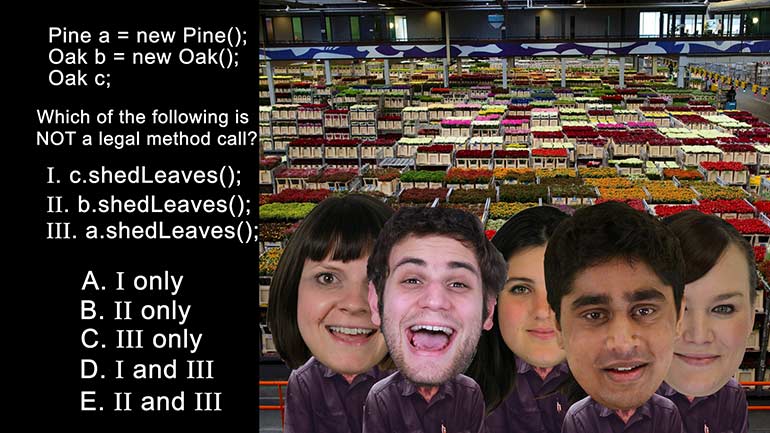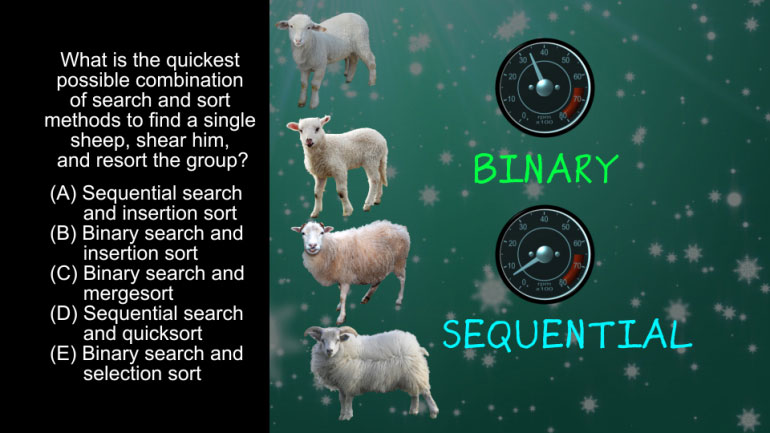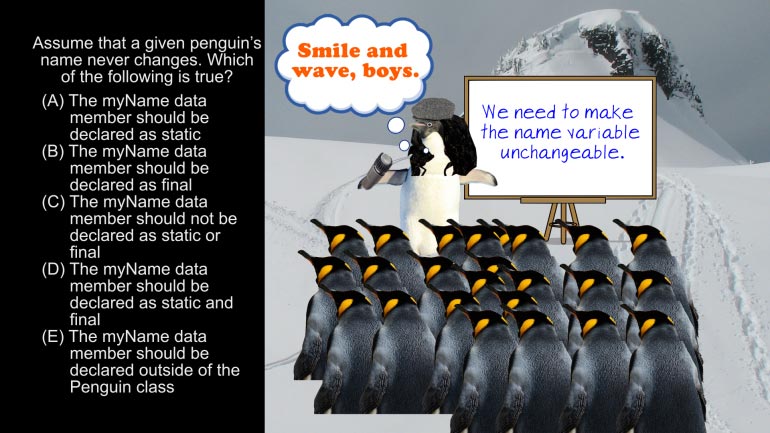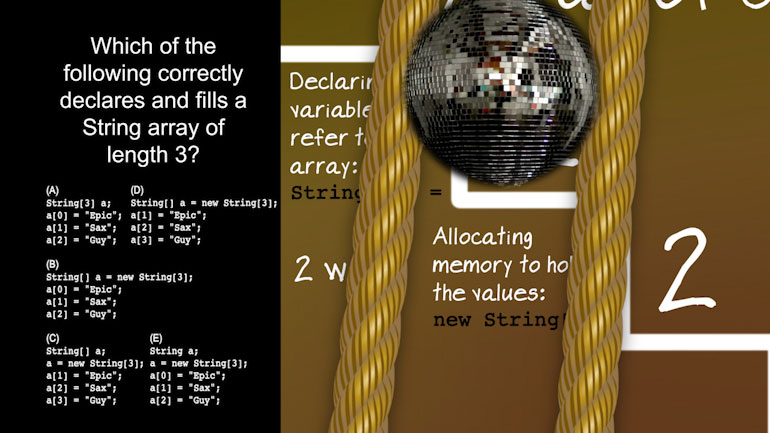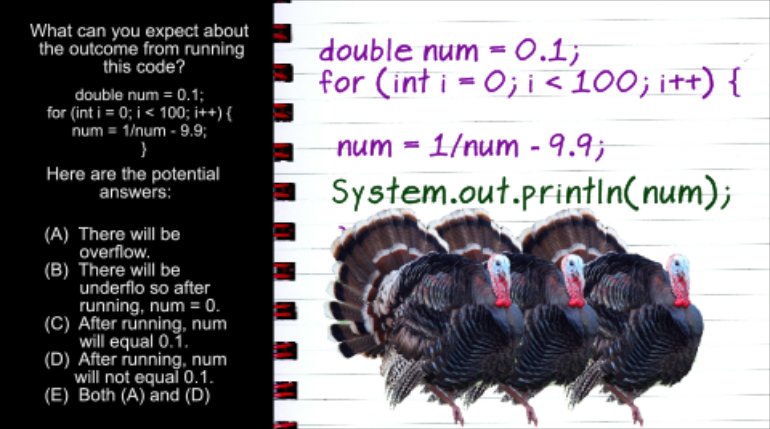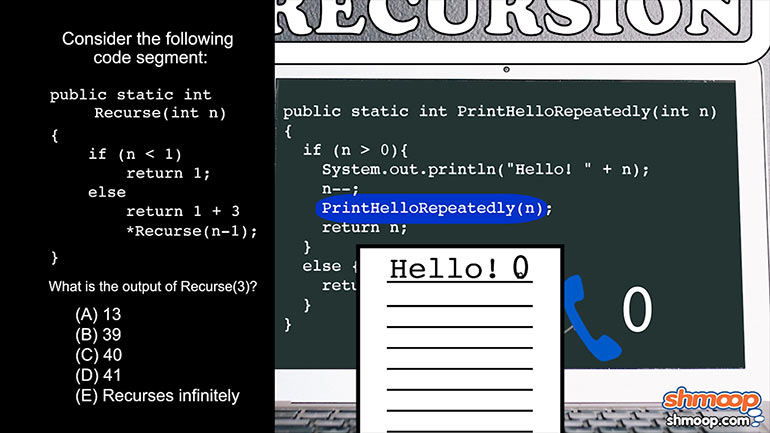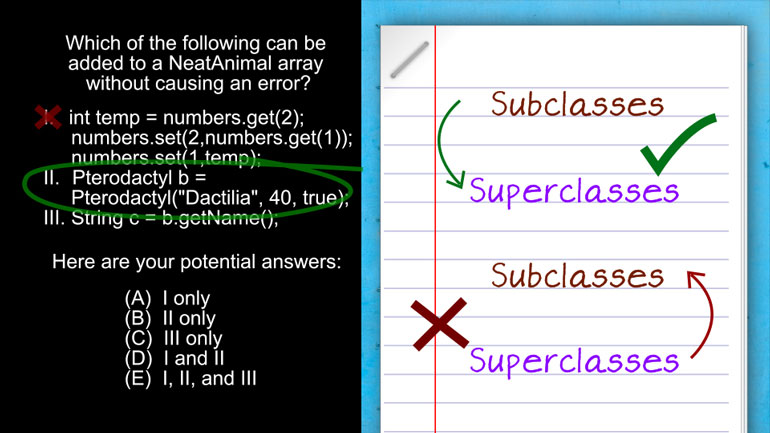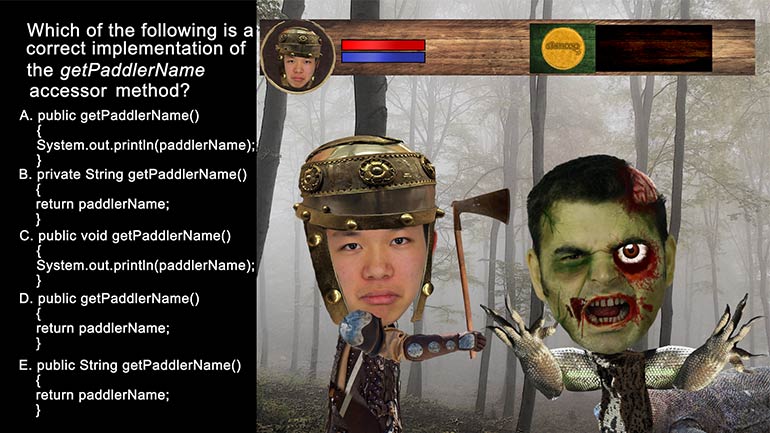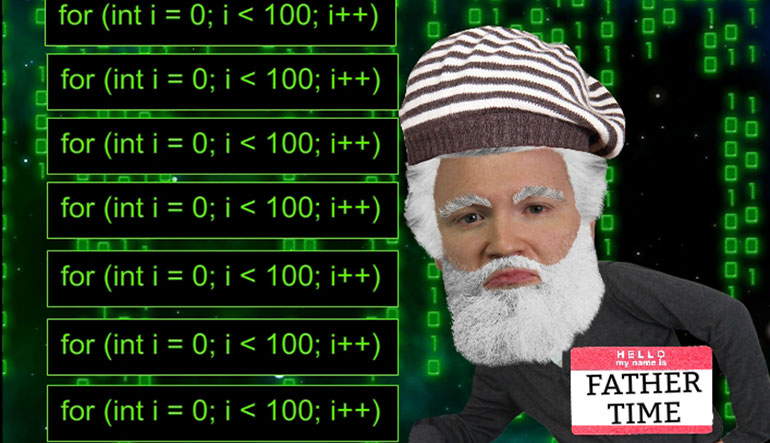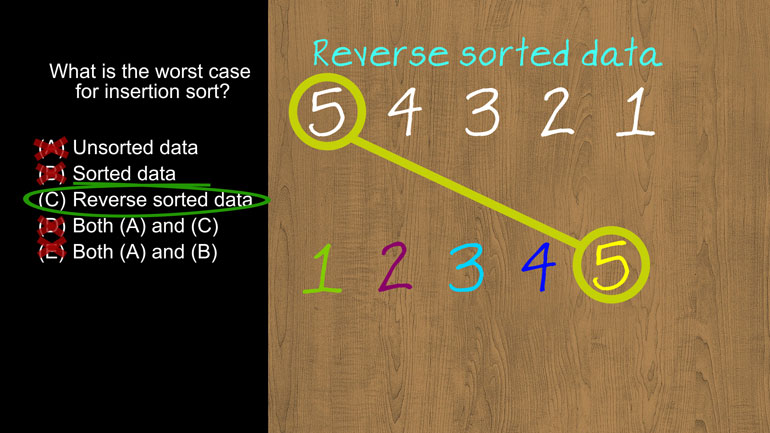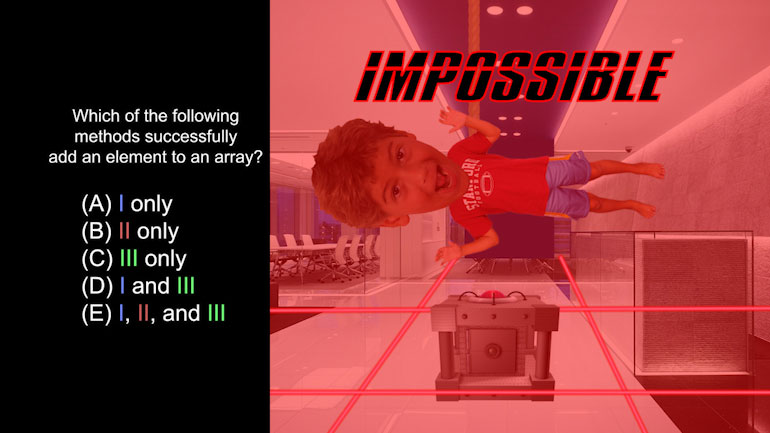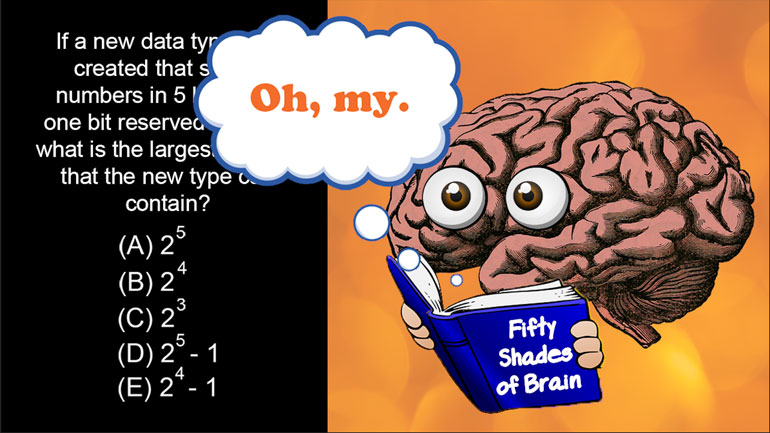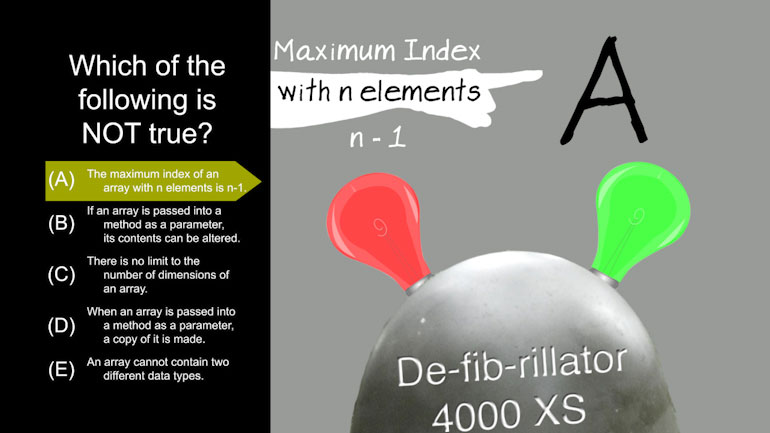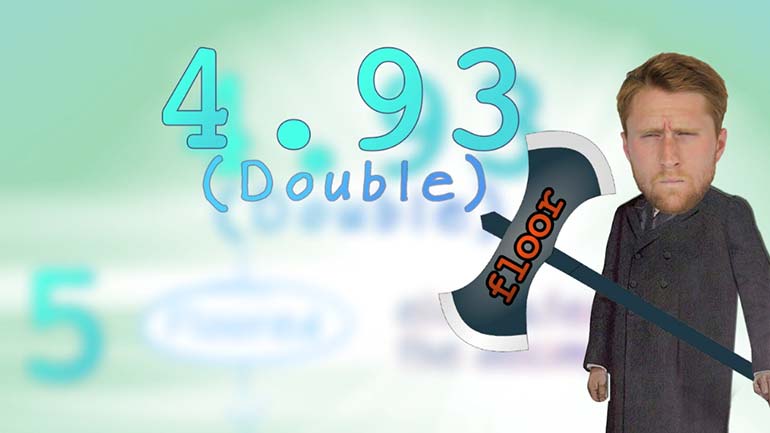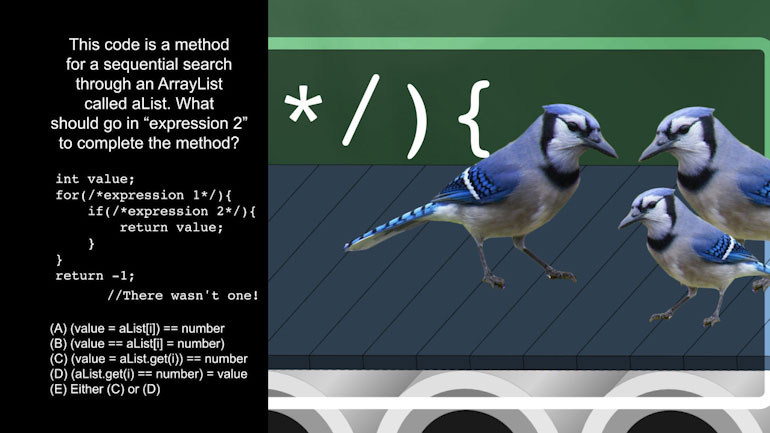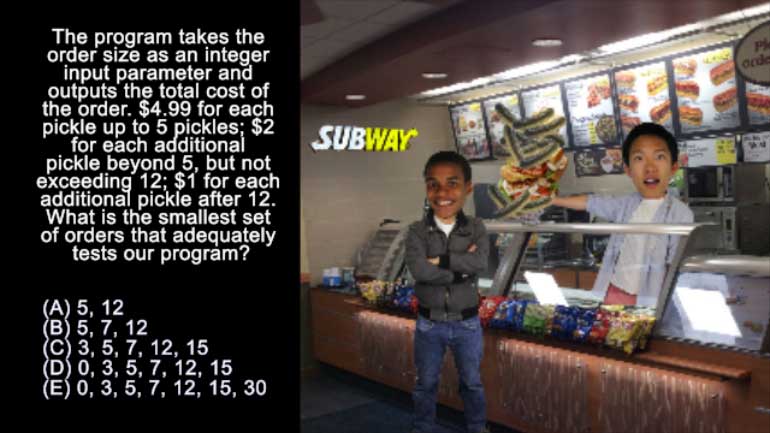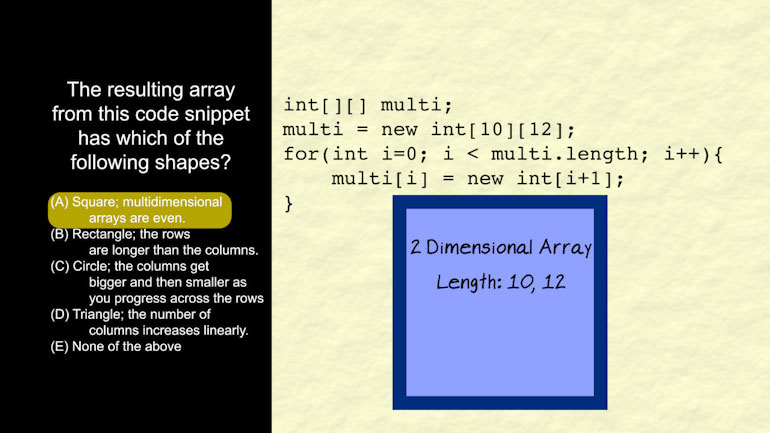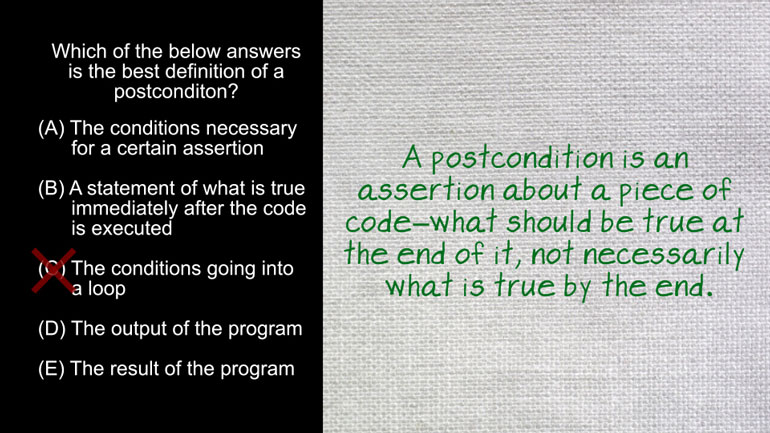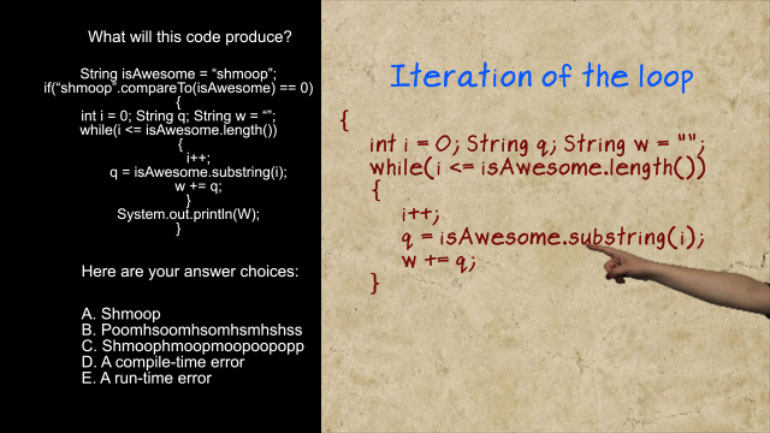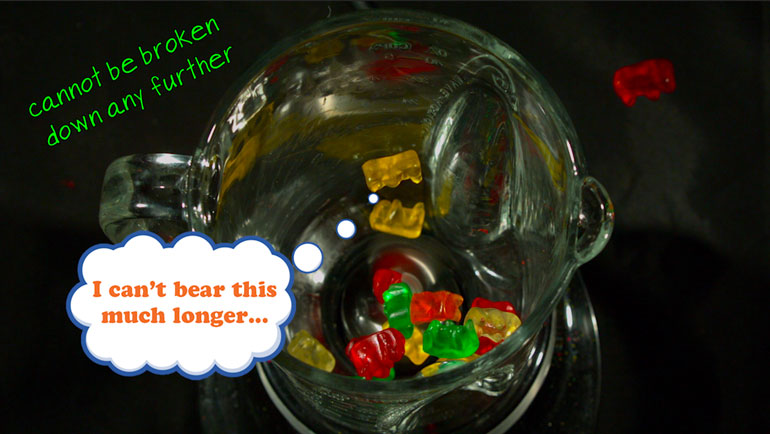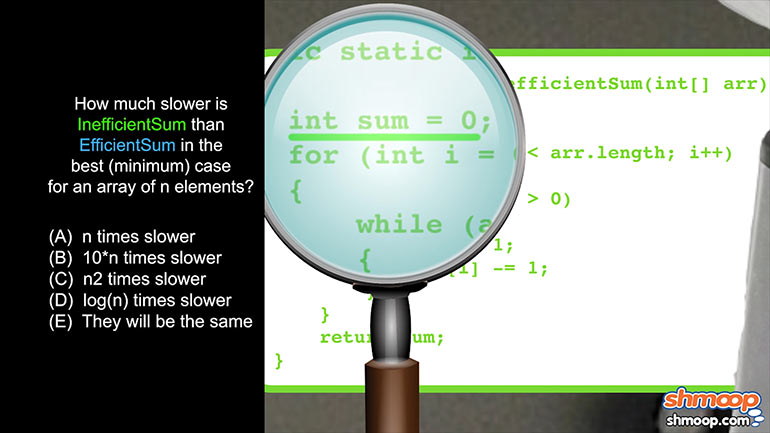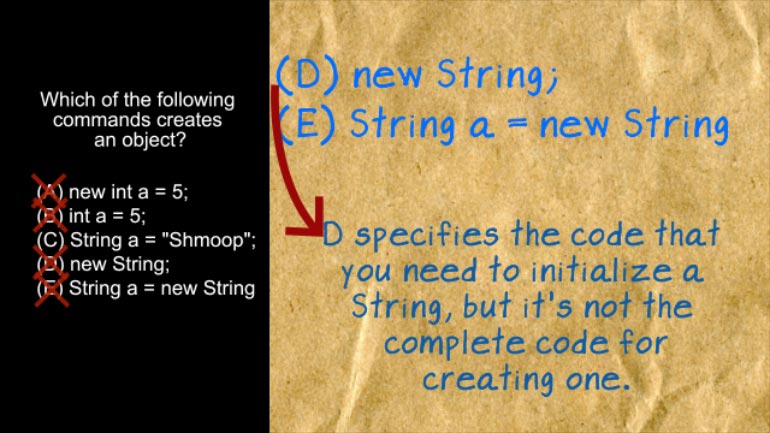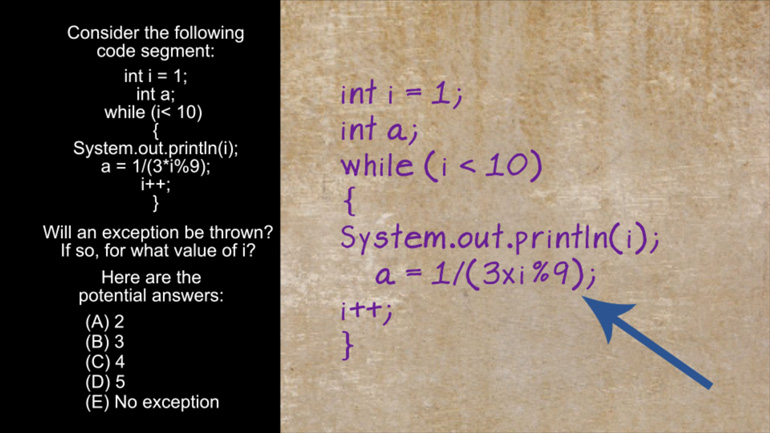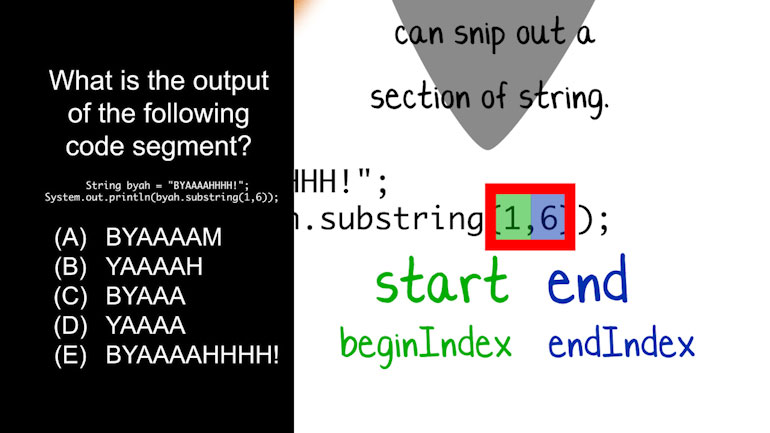ShmoopTube
Where Monty Python meets your 10th grade teacher.
Search Thousands of Shmoop Videos
AP Computer Science Videos 113 videos
AP Computer Science 1.2 GridWorld Case Study and APIs. What is the direction of the actor?
AP Computer Science 1.4 Standard Algorithms. How many times will mystery be called for mystery(n) for n > 1?
AP Computer Science 2.3 Classes and Objects. Which of the following is correct implementation of the Country class?
AP Computer Science 2.3 Standard Algorithms 169 Views
Share It!
Description:
AP Computer Science 2.3 Standard Algorithms. What would be the best possible way to sort our sheep?
Transcript
- 00:00
Thank you here's your shmoop du jour loaded with sheet
- 00:06
because we will in have it any other way All
- 00:09
right what would be the best possible way to sort
- 00:10
our sheet They'll be sorted by increasing wool density and
- 00:15
hear your potential And island all right there are more
Full Transcript
- 00:22
than a handful of sorting algorithms and each has its
- 00:25
own strengths and weaknesses It's election sorts main strength is
- 00:29
its simplicity which comes at the price of being usually
- 00:32
the slowest Well it works like this starting at the
- 00:35
beginning of an array it passes over every single element
- 00:37
and finds the smallest value Then it swaps that value
- 00:41
with whatever's in the front of the line and reverses
- 00:44
the entire thing again this time starting from the next
- 00:48
index down What you'll get is a sordid array Eventually
- 00:53
our insertion sort is also pretty simple It starts at
- 00:56
the beginning comparing two elements and move the lesson left
- 00:59
then checks the one immediately left of those two to
- 01:02
see if that newly moved value is smaller still If
- 01:05
so it moves to the left again and so on
- 01:08
Using this mechanism it'll move smaller and smaller values further
- 01:11
and further left until we're left with assorted array merge
- 01:15
sort tackle sorting by breaking one big problem into several
- 01:19
smaller ones Conceptually it divides the unsorted listed this following
- 01:23
father list until each element is its own list a
- 01:25
list with one element Is considered properly sorted then those
- 01:30
properly sorted tiny lists are combined in tow lists of
- 01:33
two elements which are easy to sort and those lists
- 01:36
are combined and sorted into larger lists and so on
- 01:39
until eventually the entire array is once again a single
- 01:41
list and sorted this time well quick sort is another
- 01:45
way of dividing a large problem in the smaller ones
- 01:48
To start an element is selected to be the pivot
- 01:51
all the other elements air then judges being either less
- 01:54
than or greater than a pivot element This ship which
- 01:57
has a wool density of four has had the great
- 02:00
fortune being selected as the pivot well quick sort would
- 02:03
then sort every sheep less than four to the left
- 02:06
and greater than four to the right and those two
- 02:09
groups that have their own pivots and do the same
- 02:11
thing And again And when the whole thing is finally
- 02:13
reconstituted we've got a single big so which one wins
- 02:18
out Well despite being way more complicated algorithms merge sort
- 02:22
and quick sort definitely perform their tasks faster than the
- 02:26
other two with quick sort beating merge sort in most 00:02:29.275 --> [endTime] situations but just barely
Related Videos
AP Computer Science 1.2 GridWorld Case Study and APIs. What is the direction of the actor?
AP Computer Science 1.4 Standard Algorithms. How many times will mystery be called for mystery(n) for n > 1?
AP Computer Science 2.3 Classes and Objects. Which of the following is correct implementation of the Country class?
AP Computer Science 3.4 Inheritance, Abstraction, and Polymorphism. Which of the following will satisfy the conditional if statement for boo, str,...
AP Computer Science 4.2 Standard Algorithms. What kind of algorithm is the following?
